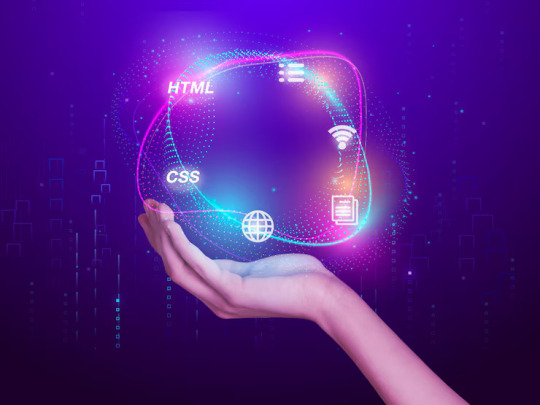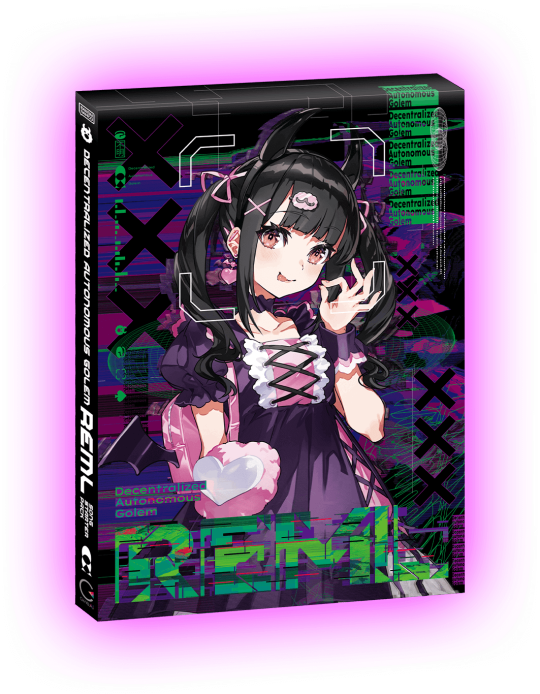#Decentralized AI
Explore tagged Tumblr posts
Text
How Far Can AI Agents Take DApp Automation?
In 2025, the convergence of artificial intelligence and blockchain has given rise to a new frontier in decentralized technology: AI-powered decentralized applications (DApps). At the heart of this movement are autonomous AI agents—digital entities capable of making decisions, executing smart contracts, interacting with protocols, and learning from user behavior, all without human intervention.
As the Web3 ecosystem scales across decentralized finance (DeFi), NFTs, gaming, identity, and governance, the demand for intelligent, automated workflows is soaring. These AI agents are not science fiction—they’re already transforming how decentralized applications function and evolve.
For developers, businesses, and users, this raises a critical question: How far can AI agents take DApp automation? What are the capabilities, limitations, and implications of integrating AI into Web3?
This article explores the role of AI agents in the automation of DApps, the underlying technologies powering this innovation, and how a forward-thinking dapp development company can lead the way through cutting-edge dapp development services.
Understanding AI Agents in the Context of Web3
AI agents are autonomous software entities that can observe environments, process information, make decisions, and perform actions to achieve specific goals. In the context of DApps, AI agents function as intelligent middleware between users, smart contracts, and blockchain networks.
These agents can automate tasks like yield optimization in DeFi, asset trading, NFT curation, identity verification, DAO governance, and even protocol maintenance. They operate based on pre-trained models, real-time data feeds, and learned behaviors. Some agents are fully on-chain, while others operate off-chain but interact with smart contracts through verifiable proofs or oracles.
The concept of AI agents in Web3 is closely linked to autonomous agents in AI research and to smart contract automation platforms like Gelato or Chainlink Keepers. The next generation of these systems is driven not just by rule-based logic, but by adaptive, learning-based intelligence that mimics decision-making in complex systems.
This evolution presents immense opportunities for any dapp development company aiming to deliver next-level dapp development services in a competitive, fast-changing digital world.
Why DApps Need Automation in 2025
As the number and complexity of DApps grow, automation becomes essential for efficiency, scalability, and reliability. Manual interactions, human-triggered transactions, and hardcoded logic cannot keep up with the demands of dynamic user bases and real-time financial operations.
Users expect DApps to be responsive, intelligent, and personalized. Whether it’s automatically rebalancing a portfolio, claiming staking rewards, adjusting DAO votes based on community behavior, or detecting fraudulent activity, the need for real-time, autonomous decision-making is critical.
Without automation, these functions require users or developers to intervene constantly, which limits the true potential of decentralization. AI agents remove this friction, creating truly autonomous applications that operate seamlessly 24/7.
A modern dapp development company understands this need and incorporates automation frameworks and AI strategies as core offerings within its dapp development services.
Core Functions of AI Agents in DApp Automation
In 2025, AI agents are fulfilling a broad range of tasks across different sectors of Web3. These tasks go beyond simple triggers and evolve into dynamic, contextual, and goal-oriented behaviors.
In DeFi, AI agents monitor yield protocols, liquidity pools, and price movements across multiple chains. They identify arbitrage opportunities, rebalance assets, and perform trades—often faster and more accurately than any human.
In NFTs and digital art, AI agents curate collections, analyze metadata, predict market trends, and recommend assets based on user behavior. Some even generate NFTs themselves using generative AI models and deploy them through smart contracts autonomously.
In DAOs, AI agents help propose, vote on, and enforce governance decisions. They analyze forum discussions, detect sentiment, simulate outcomes, and optimize treasury management. This allows DAOs to remain agile and informed without the inefficiencies of manual consensus.
In identity and credentialing, AI agents validate credentials, detect anomalies in data submissions, and issue verifiable credentials based on set parameters—without compromising user privacy or requiring centralized validators.
In each case, the automation brought by AI agents is enabling DApps to move from reactive platforms to proactive, intelligent ecosystems. For any dapp development company, building these features is a strategic differentiator in delivering sophisticated dapp development services.
The Role of On-Chain vs Off-Chain Agents
AI agents in DApp environments can operate both on-chain and off-chain, depending on the complexity of tasks and computational constraints.
On-chain agents are smart contracts that contain autonomous logic, usually limited to deterministic rules due to gas costs and on-chain data limitations. These are useful for simple automation like rebalancing or conditional staking.
Off-chain agents, on the other hand, can run complex models, process large datasets, and make probabilistic decisions using machine learning or natural language processing. These agents interact with blockchains through smart contract calls, oracles, or zero-knowledge proofs to maintain trust and verifiability.
The hybrid model—off-chain intelligence combined with on-chain execution—is emerging as the standard in 2025. This allows for powerful AI reasoning without sacrificing blockchain security or decentralization.
A competent dapp development company will design systems that balance on-chain integrity with off-chain intelligence, offering their clients dapp development services that are both high-performing and fully verifiable.
AI Tooling and Frameworks Powering Web3 Agents
The ecosystem of AI tools that support agent-based DApp automation is growing rapidly. Popular frameworks include LangChain, AutoGPT, and OpenAgent, which allow developers to build AI agents that can plan, reason, and act across Web3 interfaces.
Specialized platforms like Fetch.ai and Autonomous Worlds provide the infrastructure to deploy decentralized AI agents in a peer-to-peer environment. These agents can transact, collaborate, and even negotiate with one another using economic incentives.
Blockchains like Ethereum, Avalanche, and Cosmos are integrating with agent platforms through APIs, oracles, and messaging protocols to allow real-time interaction between smart contracts and AI processes.
These tools are now essential for any dapp development company building next-gen applications. Integrating AI agent frameworks into dapp development services allows for rapid deployment of intelligent features that evolve over time and improve based on user behavior.
The Importance of Zero-Knowledge Proofs in Agent Verification
One of the major concerns with AI in Web3 is trust. How can users be sure that an off-chain AI agent acted fairly, followed protocol rules, or respected privacy boundaries?
Zero-knowledge proofs (ZKPs) offer a compelling solution. AI agents can produce verifiable proofs of their computations, allowing smart contracts to verify that a decision was made correctly—without revealing the data or the model used.
This is especially important in privacy-sensitive domains like finance, healthcare, or identity, where users want intelligent features but don’t want to share personal information on-chain.
zkSync, Starknet, and other zk-rollup platforms are enabling scalable, ZK-compatible agent architectures where trustless computation becomes a reality. A leading dapp development company must now be fluent in zero-knowledge tools and privacy-preserving AI workflows to deliver best-in-class dapp development services.
The Benefits of AI-Driven Automation for DApps
The integration of AI agents into decentralized applications yields significant benefits for both developers and users.
Applications become more resilient by continuously monitoring, adapting, and self-correcting without human intervention. Downtime, errors, and inefficiencies are reduced dramatically.
User experiences improve through personalization and predictive behaviors. Agents can adapt interfaces, recommend actions, and simplify decision-making based on user preferences and goals.
Security is enhanced as agents detect anomalies, assess transaction risks, and enforce safety protocols. They can learn from past threats and automatically respond to new ones.
Scalability increases as agents handle thousands of tasks in parallel, optimizing performance and throughput across chains and contracts.
All of these benefits position AI automation as a must-have in modern DApp architecture. A dapp development company that integrates these capabilities into their dapp development services offers unmatched value to businesses and users alike.
Challenges and Risks of Autonomous DApps
While the potential is enormous, there are still important challenges to address in AI-powered DApp automation.
Trust and accountability are critical. If an agent acts autonomously and causes a financial loss or security breach, who is responsible? Legal frameworks and governance mechanisms are still evolving to answer these questions.
Bias and fairness in AI decisions must be handled carefully. Agents trained on flawed or incomplete data can make unethical or exclusionary decisions, especially in sensitive sectors like lending or governance.
Resource consumption is another concern. Running AI agents, especially off-chain, can require significant compute resources, raising questions about cost, energy use, and centralization.
Interoperability is still a work in progress. Not all blockchains support agent integration or standardized APIs for AI communication. Developers must often build custom interfaces or middleware to support cross-chain agent functionality.
These risks must be managed through careful design, testing, auditing, and community engagement. A responsible dapp development company addresses these issues head-on as part of a holistic dapp development service offering.
Use Cases Already Emerging in 2025
In 2025, AI-powered agents are already deployed across live DApps delivering real-world value.
In DeFi, agent-powered portfolio managers automatically adjust asset allocations based on risk profiles, market trends, and user preferences. These agents act across chains, using protocols like LayerZero or Wormhole to optimize across ecosystems.
In Web3 games, NPCs (non-player characters) are controlled by autonomous agents that learn from players, adapt tactics, and evolve dynamically. These agents are minted as NFTs and traded as AI-powered companions.
In DAOs, governance assistants analyze proposals, community discussions, and token metrics to recommend decisions. They serve as real-time advisors to human participants, enabling faster, more informed governance.
In the creator economy, AI agents help artists mint NFTs, optimize royalties, and market their content through automated campaigns, all while keeping ownership and earnings on-chain.
These examples represent only the beginning. As AI agents become more intelligent and accessible, their role in DApps will continue to grow exponentially.
The Future of AI in DApp Development
The future of Web3 is not just decentralized—it is intelligent, adaptive, and autonomous. AI agents will become as integral to DApps as smart contracts themselves. They will power backends, shape user interfaces, enforce governance, and manage economic flows.
We are heading toward a world of self-managing DApps that require little to no human input but still serve millions of users, fulfill complex roles, and continuously improve. This is the foundation for what many call the Autonomous Web—a decentralized internet driven by AI and governed by users.
For any business, startup, or entrepreneur entering this space, the choice of dapp development company is crucial. Only those who understand how to blend AI agents, smart contract logic, zero-knowledge infrastructure, and cross-chain systems will be able to deliver the advanced dapp development services needed to succeed.
Conclusion: How Far Can AI Agents Take DApp Automation?
AI agents are pushing the boundaries of what DApps can do. From finance and identity to gaming and governance, these autonomous systems are enabling intelligent, scalable, and personalized experiences that were previously impossible.
While challenges remain, the potential of AI-driven automation in Web3 is massive. It transforms how DApps operate, how users engage, and how systems evolve. For developers and businesses, now is the time to explore this convergence.
Partnering with a visionary dapp development company that integrates AI into its dapp development services is the key to unlocking this future. Because in the world of Web3, automation isn’t just about efficiency—it’s about empowerment.

#ai#AI Agents in Web3#DApp Automation#Decentralized AI#dApp Development Company#dApp Development Services#Smart Contract Automation#Web3 and Artificial Intelligence#Autonomous DApps#AI-Powered Blockchain
0 notes
Text
DAO Mergers & Acquisitions: A Deep Dive into the Decentralized Deal Landscape
In late 2021, the proposed merger of DeFi DAOs Fei Protocol and Rari Capital aimed to revolutionize the space. Fei’s algorithmic stablecoin and Rari’s permissionless lending pools were to unite under a single DAO, Tribe DAO, approved with overwhelming community support in December. However, nine months later, it collapsed. The Fei-Rari failure was a significant blow, but not the only DAO M&A…
0 notes
Text
youtube
1 note
·
View note
Text
i have learned the art of blinkie making

#🧁 sweet shenanigans#jiraiblr#blinkie#cevio ai#cevio#decentralized autonomous golem reml#web resources
17 notes
·
View notes
Text
NaNoWriMo has decided to to be pro-AI writing. One of their sponsors is an AI company. They say categorically condemning ai writing is classified and ablist.
As someone who narrated half a book using text to speech software because my hands weren't working, I extend unto them a hearty "fuck you for using disabled people as a shield for your shitty viewpoint."
#nanowrimo#disability#ai#Seriously the BALLS#Enshitification is why we can't have nice things#This is why things like nanowrimo need to be decentralized and held in common between participants
13 notes
·
View notes
Text
happy birthday to zeeu(fanloid) and reml(cevio ai) !!!! [aug 11]

zeeu

reml
ZeeU is the official genderswap of SeeU. his design was revealed on the Vocaloidtalks fb on 11 aug 2015. he is illustrated by KKUEM, and his voice is obviously just SeeU's, whos vp is Kim Da-hee. before zeeu, an unoffical genderbend of seeu called SeeWoo or USee got popular, and so zeeu sometimes gets called either of those names.
REML (aka Reml) (aka Decentralized Autonomous Golem REML) is a japanese synth who released today, 11 aug 2023 ! it was developed by developed by Bandai Namco Entertainment Inc. in collaboration with the DEN-ON-BU project. its vp is voice actress and singer-songwriter Wotoha, and its illustrator is Mika Pikazo. reml is a mass produced clone created by the “GR company", based on the original Rimuru/ Reml, a member of Shin-Shinjuku GR School's electronic music club. it is 155cm tall. its sheep dog animal creature is called pomemori. reml is not officially referred to with any gender, and is just called "it"

concept art

logo

box art
#bday#vocal synth#vocal synthesizers#vocal synths#vocalsynth#vocalsynths#vocaloid#vocaloid 3#seeu#zeeu#fanloid#pitchloid#seewoo#usee#cevio#cevio ai#reml#cevio reml#decentralized autonomous golem#decentralized autonomous golem reml#bandi namco#denonbu#august#aug 11
71 notes
·
View notes
Text
Emergence and the Architecture of Recursive Peace
Emergence: Where ants, AI, and Bitcoin converge—illustrating the rise of intelligence and trust from recursive interaction. From the Kizziah.Blog AI Bitcoin Recursion Thesis. Inspired by Steven Johnson’s Emergence: The Connected Lives of Ants, Brains, Cities, and Software What do ant colonies, urban neighborhoods, neural nets, and Bitcoin have in common? Each is a system built without a…

View On WordPress
#AI cognition#AI Prompt#Bitcoin#cognitive emergence#decentralized architecture#DrSNiPs#emergence#Kizziah Blog AI Bitcoin Recursion Thesis#Kizziah.Blog#recursive systems#Signal Lattice#Steven Johnson#structural trust
2 notes
·
View notes
Text
AI Agent Marketplace: Olas Connects Autonomous Bots for Collaborative Tasks
Imagine a scenario where artificial intelligence (AI) programs can independently engage other AI programs to accomplish tasks. This is the core concept behind Mech Marketplace, a decentralized platform created by Olas, a firm specializing in crypto-AI. It facilitates seamless collaboration between various AI agents on an autonomous basis. David Minarsch, a founding member of Olas, explained that…
0 notes
Text
The Sequence Engineering #464: OpenAI’s Relatively Unknown Agent Framework
New Post has been published on https://thedigitalinsider.com/the-sequence-engineering-464-openais-relatively-unknown-agent-framework/
The Sequence Engineering #464: OpenAI’s Relatively Unknown Agent Framework
OpenAI Swarm provides the key building blocks for implementing agents.
Created Using Midjourney
Welcome to The Sequence Engineering where we discuss core AI engineering topics, frameworks, platforms, implementation techniques etc. As mentioned in our Sunday series, we are starting 2025 with a very exciting editorial calendar with 6 editions.
The Sequence Knowledge: Continuing with educational topics and related research. We’re kicking off an exciting series on RAG and have others lined up on evaluations, decentralized AI, code generation, and more.
The Sequence Engineering: A standalone edition dedicated to engineering topics such as frameworks, platforms, and case studies. I’ve started three AI companies in the last 18 months so have a lot of opinions about engineering topics.
The Sequence Chat: Our interview series featuring researchers and practitioners in the AI space.
The Sequence Research: Covering current research papers.
The Sequence Insights: Weekly essays on deep technical or philosophical topics related to AI.
The Sequence Radar: Our Sunday edition covering news, startups, and other relevant topics.
It is ambitious but certainly fun so please subscribe before prices increase 🙂
TheSequence is a reader-supported publication. To receive new posts and support my work, consider becoming a free or paid subscriber.
To officially kick off our edition about AI engineering, we are going to focus on a framework released by OpenAI for multi-agent interactions that remains relatively unknown.
OpenAI Swarm is an experimental framework designed for exploring and developing multi-agent systems. It provides a lightweight and flexible interface for coordinating the actions and interactions of multiple agents, enabling the creation of complex and emergent behaviors. Swarm is explicitly intended for educational and experimental purposes; it’s not built for production environments and does not offer official OpenAI support.
Architecture
#2025#agent#agents#ai#AI Engineering#architecture#Building#Calendar#code#code generation#Companies#decentralized AI#editorial#engineering#experimental#focus#framework#insights#INterview#it#Multi-Agent#News#openai#opinions#Other#PAID#platforms#Production#radar#RAG
0 notes
Text
Maximize NFT Value: Staking Explained
The world of digital assets has been transformed by non-fungible tokens (NFTs), which have found applications in digital art, gaming, real estate, and collectibles. However, a new trend has emerged that enhances their utility: NFT staking. This strategy allows NFT holders to earn passive income by locking their assets in blockchain staking protocols. In this guide, we will explore NFT staking,…
2 notes
·
View notes
Text
UAITrading (Unstoppable AI Trading): AI-Powered Trading for Stocks, Forex, and Crypto
https://uaitrading.ai/ UAITrading For On trading volumes offers, many free trade analysis tools and pending bonuses | Unstoppable AI Trading (Uaitrading) is a platform that integrates advanced artificial intelligence (AI) technologies to enhance trading strategies across various financial markets, including stocks, forex, and cryptocurrencies. By leveraging AI, the platform aims to provide real-time asset monitoring, automated portfolio management, and optimized trade execution, thereby simplifying the investment process for users.

One of the innovative features of Unstoppable AI Trading is its UAI token farming, which offers users opportunities to earn additional income through decentralized finance (DeFi) mechanisms. This approach allows traders to diversify their investment strategies and potentially increase returns by participating in token farming activities.
The platform's AI-driven systems are designed to analyze vast amounts of market data, identify profitable trading opportunities, and execute trades without human intervention. This automation not only enhances efficiency but also reduces the emotional biases that often affect human traders, leading to more consistent and objective trading decisions.
By harnessing the power of AI, Unstoppable AI Trading aims to empower both novice and experienced traders to navigate the complexities of financial markets more effectively, offering tools and strategies that adapt to dynamic market conditions
#Uaitrading#AI Trading#Automated Trading#Forex Trading AI#Crypto Trading Bot#UAI Token#Token Farming#Decentralized Finance (DeFi)#AI Investment Platform#Smart Trading Algorithms#AI Stock Trading#Machine Learning in Trading#AI-Powered Portfolio Management#Algorithmic Trading#Uaitrading AI Trading#Forex AI#Smart Trading#Stock Market#AI Investing#Machine Learning Trading#Trading Bot#Crypto AI#DeFi#UAI#Crypto Investing
2 notes
·
View notes
Text
Welcome to the Future of Web3 Experiences | Top 10 Essential Tools for Developers
The rise of Web3 is revolutionizing how we interact with digital spaces, empowering users with decentralization, blockchain technology, and smart contracts. But how do you create engaging Web3 experiences? In this video, we explore 10 essential tools every Web3 developer and creator needs to build cutting-edge projects. From Ethereum and Unreal Engine to OpenSea and The Graph, these tools will help you unlock the full potential of Web3!
🔹 What you'll learn:
✅ Why Web3 is the future of the internet
✅ The best tools for building dApps, NFTs, and metaverse experiences
✅ How to integrate blockchain, smart contracts, and 3D graphics ✅ Real-world examples of successful Web3 projects Whether you're a developer, artist, or entrepreneur, these tools will help you shape the next digital revolution. 🔥 Don't forget to like, subscribe, and turn on notifications for more Web3 insights! 📢 Which Web3 tool are you most excited about? Drop a comment below!
youtube
#Web3#Blockchain#NFT#Metaverse#Ethereum#Crypto#Decentralization#SmartContracts#Web3Development#CryptoNews#DigitalAssets#NFTCommunity#AI#Tech#Defi#Dapps#Programming#UnrealEngine#Opensea#Data#Youtube
2 notes
·
View notes
Text
Post this here for archival
Transcribe:
I saw that tweet abt bskyVStwtr on which allows more 4i to access ur data 🥲
It's like bad vs less bad at this point
Im really rooting fot the resurface of decentralized SocMed eventhough i dont fully understands how the web3 communication protocols (ActivityPub, Nostr, AT,Matrix etc) works tbh
I kinda get tired of everytime i tried to enter the profile page of a creator i get blocked by a wall
And if i sign up every service with mail i eventually get traced with an established digital profile and then get pawned and bombarded with ads in mail AND THEY DIRECTLY PHONE ME
Ye maybe buy another number to sign for these services later but i dont want to abandon current numbr
Really think of everyone should just have a wordpress with comment system and communicating with ActivityPub (plugin is available) but Wordpress is having a commotion now
And yeah setting up such stuffs require a bit technical

#activitypub#decentralization#decentralizedtech#decentralized social media#social media#blue sky#twitter#Twitter-to-Bluesky exodius#wordpress#bsky#ai scraping
2 notes
·
View notes
Text
How Are Blockchain and Smart Contracts Revolutionizing Personal Loans?
Introduction
The personal loan industry is undergoing a significant transformation, thanks to emerging technologies like blockchain and smart contracts. These innovations are making loan processing faster, more secure, and transparent. Traditional personal loan processes often involve lengthy paperwork, high-interest rates, and bureaucratic delays. However, with blockchain-powered lending, borrowers can experience streamlined approvals, reduced costs, and improved security.
As digital finance continues to evolve, understanding how blockchain and smart contracts impact the personal loan sector is crucial for both lenders and borrowers. This article explores how these technologies work and their benefits in revolutionizing the lending landscape.
What Is Blockchain and How Does It Apply to Personal Loans?
Blockchain is a decentralized, distributed ledger technology that records transactions securely and transparently. Unlike traditional banking systems, where a central authority controls loan transactions, blockchain ensures that all records are immutable and tamper-proof.
Key Features of Blockchain in Lending:
Decentralization – Eliminates the need for intermediaries like banks and credit agencies.
Transparency – Every transaction is recorded and accessible to relevant parties.
Security – Reduces fraud and unauthorized data access.
Efficiency – Speeds up loan approvals and fund disbursements.
By integrating blockchain, personal loan providers can reduce inefficiencies, making borrowing more accessible and affordable.
What Are Smart Contracts and Their Role in Personal Loans?
Smart contracts are self-executing contracts with terms directly written into code. These contracts automatically execute actions when predefined conditions are met, eliminating the need for intermediaries.
How Smart Contracts Work in Personal Lending:
Borrower Applies for a Loan – Details like loan amount, interest rate, and tenure are recorded on a blockchain.
Smart Contract Verification – The contract checks the borrower's credentials using blockchain data.
Automatic Loan Approval – If all criteria are met, the smart contract executes the loan agreement.
Instant Fund Disbursement – Upon approval, funds are transferred without manual intervention.
Automated Repayment Tracking – Payments are automatically deducted and recorded on the blockchain.
With smart contracts, borrowers benefit from a seamless lending experience, while lenders reduce risks associated with fraud and late repayments.
Benefits of Blockchain and Smart Contracts in Personal Loans
1. Faster Loan Approvals and Disbursements
Traditional personal loan applications can take days or weeks for approval due to manual verification. With blockchain and smart contracts:
Real-time verification speeds up approval processes.
Instant fund transfers ensure quick access to borrowed funds.
Automated underwriting reduces paperwork and delays.
2. Increased Security and Fraud Prevention
One of the biggest challenges in lending is fraud and identity theft. Blockchain technology mitigates these risks by:
Creating tamper-proof transaction records.
Eliminating data manipulation through decentralized verification.
Ensuring borrower identity verification using encrypted blockchain records.
3. Reduced Costs for Borrowers
Banks and traditional lenders charge high processing fees and interest rates due to administrative overheads. Blockchain-based personal loans minimize these costs by:
Removing middlemen like banks and credit agencies.
Lowering transaction fees using decentralized finance (DeFi) platforms.
Providing competitive interest rates through peer-to-peer lending.
4. Transparency and Trust in Lending
Blockchain records all transactions publicly, ensuring transparency in lending agreements. Borrowers and lenders can:
Track loan agreements in real time.
Avoid hidden fees or unfair lending terms.
Ensure compliance with agreed-upon loan conditions.
5. Improved Accessibility to Credit
Many individuals lack a formal credit history, making it difficult to obtain loans from traditional banks. Blockchain lending platforms use alternative credit assessment models, enabling:
Loans for the unbanked and underbanked populations.
Alternative credit scoring using transaction history and blockchain reputation.
Financial inclusion for freelancers, gig workers, and small business owners.
The Rise of Decentralized Finance (DeFi) in Personal Loans
Decentralized Finance (DeFi) is a blockchain-based financial ecosystem that eliminates intermediaries, allowing direct lending and borrowing between individuals.
Features of DeFi Lending:
Smart contract-based lending platforms.
Lower interest rates compared to traditional banks.
Access to global lenders without geographical restrictions.
Popular DeFi lending platforms like Aave, Compound, and MakerDAO are already revolutionizing the way personal loans are issued, making borrowing easier and more cost-effective.
Challenges and Risks of Blockchain-Based Personal Loans
Despite its advantages, blockchain lending faces some challenges:
1. Regulatory Uncertainty
Governments and financial institutions are still working on regulations for blockchain-based personal loans, which could impact widespread adoption.
2. Volatility in Crypto-Backed Loans
Some blockchain loans are backed by cryptocurrencies, which are highly volatile, posing risks for borrowers and lenders.
3. Technical Complexity
Borrowers may need basic knowledge of blockchain and digital wallets, making accessibility a challenge for non-tech-savvy individuals.
4. Limited Consumer Protection
Unlike traditional banks, blockchain-based lending platforms may lack consumer protection mechanisms in case of disputes or fraud.
The Future of Blockchain in the Personal Loan Market
As blockchain and smart contracts gain acceptance, the personal loan industry is expected to undergo further innovations:
1. Mainstream Adoption of Blockchain-Based Lending
More traditional banks may integrate blockchain technology into their lending processes for faster approvals and increased security.
2. Government-Backed Blockchain Lending Platforms
Governments may introduce blockchain-based loan programs to enhance financial inclusion and transparency.
3. AI and Blockchain Integration for Enhanced Credit Scoring
Combining AI with blockchain will enable more accurate borrower assessments, leading to fairer lending practices.
4. Smart Loans with Customizable Terms
Future personal loans may be fully customizable, allowing borrowers to set their preferred repayment structures and interest rates through AI-driven smart contracts.
Conclusion
Blockchain and smart contracts are revolutionizing the personal loan industry by making lending faster, more transparent, and secure. These technologies eliminate the need for intermediaries, reducing costs and improving accessibility for borrowers worldwide. While challenges like regulatory uncertainty and crypto volatility remain, the future of blockchain lending looks promising.
As financial institutions and fintech companies continue to innovate, borrowers can expect a seamless and efficient personal loan experience in the years to come. Understanding how blockchain-based lending works today will help individuals make informed borrowing decisions and take advantage of future advancements in digital finance.
#personal loan#loan apps#fincrif#bank#nbfc personal loan#personal loan online#personal loans#loan services#finance#personal laon#Personal loan#Blockchain in lending#Smart contracts for personal loans#Decentralized finance (DeFi) loans#Blockchain-based personal loans#Crypto-backed personal loans#Smart contract lending#Peer-to-peer lending with blockchain#Digital lending platforms#Fintech and blockchain loans#Secure loan transactions with blockchain#Instant loan approvals with smart contracts#Automated loan disbursement#Personal loan fraud prevention#AI and blockchain in lending#Digital identity verification for loans#Smart loan agreements#Alternative credit scoring with blockchain#Secure lending platforms#Financial inclusion through blockchain
1 note
·
View note

